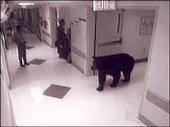June 17, 2009

In many parts of the world, economic growth has for centuries been given priority over environmental conservation.
But as the degree of environmental damage caused by indiscriminate economic development intensifies, a global consensus has been building that the world must do something to protect the environment.
The 1992 United Nations Conference on Environment and Development was a turning point in rethinking growth and conservation. The UN conference raised international awareness of the importance of environmental conservation, introducing the then new idea of "green growth."
"Green growth" is defined as achieving sustainable economic growth by developing low-carbon, eco-friendly industries.

Acknowledging the importance of saving the environment, many countries, especially developed nations, have paid more attention to environmental conservation when pushing ahead with economic development plans, and have developed a future economic development plan revolving around green growth.
Korea is no exception, and the Lee Myung-bak government has always stressed that green growth is at the top of the government agenda.
Korea has also made efforts to share its “low carbon, green growth” vision with the rest of the world, and on June 16, a seminar was held at the Press Center in central Seoul, where renowned professors and journalists from around the world discussed green growth.
Participants included 15 journalists from renowned international newspapers, including the New York Times (United States), Le Figaro (France), Asahi Shimbun (Japan), De Telegraaf (the Netherlands) and Rossiyskaya Gazeta (Russia), who are in Seoul through June 20 for an explanatory session designed to promote Korea’s low carbon, green growth policy.
The five-day long session was put together by the Korean Culture and Information Service (KOIS) under the auspices of the Ministry of Culture, Sports and Tourism.

In addition to the journalists, three professors well known in the field of the environment and a government official from the Presidential Committee on Green Growth attended the seminar.
The theme of the seminar was “Low Carbon, Green World.”
To open, moderator Yoo Jang-hee, Emeritus Professor at Ewha Womans University, said that the occasion would be a great chance for the journalists to learn about Korea’s green growth policy and for the Korean participants to know what other countries are doing to achieve green growth.
The seminar was composed of two sessions.
For the first session, titled “Advent of Global Green Growth,” two Korean professors gave presentations mainly explaining what Korea’s green growth policy is all about.
Dr. Kim Sung-il, Professor of Forest Sciences at Seoul National University, said that green growth is not an option, but a necessity, as we are losing biodiversity around the world. He emphasized that Korea’s low carbon, green growth policy must be pursued to achieve sustainable development.
Then Korea University Professor of Economics Dr. Kang Sung-jin briefed the foreign participants on details of Korea’s green growth policy.
He introduced key projects of Korea’s policy, including plans to develop new growth industries (such as new renewable energy), plans to build green homes and buildings, and plans to bring life back to the country’s four major rivers, mainly for clean water preservation.

Andrew Revkin, an environment reporter for The New York Times, speaks during the seminar.
After some discussion, Yoo Beom-sik from the Presidential Committee on Green Growth opened the second session titled “Implementation Status of Green Growth Policies and Strategies,” which took a look at the green growth vision.
He said that, in the long run, the green growth policy will create more jobs and more economic benefits while fostering environmentally friendly technology as a new growth engine.
This will also improve people’s quality of life and further improve the global natural environment.
He stressed that, to that end, public support and cooperation from the business community are both needed.
Following this presentation, four foreign journalists renowned in the field of the environment talked about what their countries are doing to achieve green growth and their insights about the vision.
In particular, Andrew Revkin, an environment reporter for The New York Times, impressed the audience with great examples that all stressed the need for green growth. For instance, he said that Guinean teenagers in Africa flock to the airport at night to study, because that is the only place with electric lighting.
Revkin said the world really needs to act to save energy and journalists for their part should produce stories that would raise public awareness of the environmental issue.
He is currently running “The New York Times Dot Earth,” a popular blog visited by 300,000 readers every month.
At the end of the seminar, all participants agreed that green growth is not an option, but the only way for countries to move forward, and public awareness and cooperation from the business community must facilitate it.
During their remaining days through June 20, the invited journalists are to see many environment-friendly aspects of Korea.
The reporters will also visit the Korea Institute of Machinery and Materials to learn more about various green technologies focused on removing hazardous materials from the environment and making full use of renewable energy resources.
By Han Aran
Korea.net Staff Writer

No comments:
Post a Comment